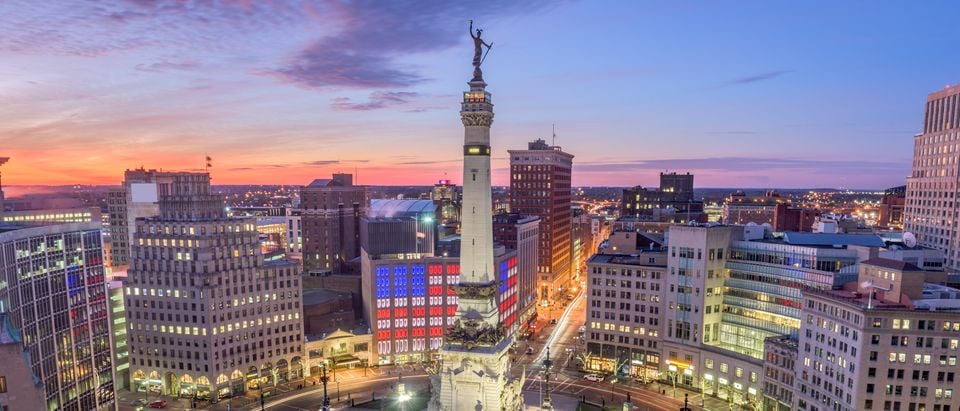Indianapolis, Indiana, was hit hard by the nationwide manufacturing decline during the 1990s and early 2000s. Traces of that era still linger. Just south of downtown, the remains of a mostly-disassembled Chevy plant straddle a crumbling asphalt parking lot. But the scene shifts dramatically when you enter the city.
Downtown Indianapolis, a short bike ride away from the old Chevy plant, is doing just fine. The streets bustle with business professionals during the day. A lively farmer’s market brings in fresh produce and flowers from miles around every week. University students can enjoy a stroll along a charming canal that threads its way through the heart of the city.
Wages are rising too. The Indianapolis labor force is fully employed. Major offices for Salesforce and Genesys are poised to add a few thousand jobs over the next few years.
Life is good here.
The story is similar in other Midwestern and Southern cities. A recent report from the Milken Institute found that Texas cities like Dallas, San Antonio and Austin are some of the fastest-growing and most economically-vibrant cities in the nation by measures like job creation, growth in wages and technological innovations. Raleigh, Columbus, Atlanta and Nashville made the shortlist for Amazon’s second headquarters.
All are remarkably affordable places to live compared to their more-popular coastal cousins. Nashville and Austin are home to world-famous music scenes, Atlanta has a vibrant art, hip-hop and indie rock community, and the Raleigh area has a booming research and technology sector. They offer larger cities real competition for young transplants.
Meanwhile, the unpleasant reality of America’s largest coastal cities is they are incredibly expensive places to live. A young adult in Nashville would need a raise of about 56 percent to maintain the same standard of living in Boston and would need to nearly double their income to enjoy the same lifestyle in Brooklyn or Manhattan.
The West Coast is worse: the California Association of Realtors recently released a report suggesting that prospective home buyers must earn about $333,000 to buy a place in the city without going broke. But median income in San Francisco is only about $83,000 for a single-person household. The math simply does not add up for people not employed in extremely high-paying professions. By comparison, Austin residents can buy a starter home outright for about $277,000 or rent a two-bedroom apartment for around $1,200 a month.
In May, billionaire AOL founder Steve Case and bestselling author J.D. Vance wrapped up a multi-city bus tour of entrepreneurial hotbeds outside of Silicon Valley, hosting startup pitch competitions where a winner in each city received $100,000 in seed funding.
Case personally invested over $3 million of his own funds, but the project has also attracted investments from Jeff Bezos, Tory Burch and the executives of Starbucks, Spanx and Hewlett Packard.
Why are they interested in Trump country when Silicon Valley, Boston and New York lead cities nationwide in total amount of venture capital invested in local businesses? It’s simple. Cities full of people with expertise in industries besides software development have a unique advantage: They can apply emerging technology in radical, new ways to improve mature industries like shipping or agriculture.
One example of outside-the-Valley innovation is a Dallas-based startup called Eden Green, an agriculture technology firm which spent the last few years developing an indoor vertical farm across the street from a Walmart distribution facility. The produce is pesticide-free and herbicide-free. Since it’s grown locally, the company says food could arrive in stores only a day after being picked, reducing food wasted in transport.
Why should you be interested in Trump country? Mid-sized cities all over America’s heartland offer low cost of living, good quality of life and, far more importantly, the opportunity to engage with an emerging network of entrepreneurs and innovators applying technological breakthroughs to some of our most pressing problems.
If you are fed up with subway systems crumbling before your eyes, paying $12 for a cocktail and sharing an apartment with three other people, it’s time to pack your bags and head to Trump country. It’s thriving.
H.J. Bennett is a Dallas-based writer for Young Voices. You can follow her on Twitter at @thehjbennett.
The views and opinions expressed in this commentary are those of the author and do not reflect the official position of The Daily Caller.


